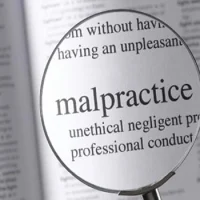A large majority of neurosurgeons in the United States perform extra tests and procedures as a precaution against malpractice lawsuits. In states with greater risk liability, defensive medicine spending is especially high. Defensive medicine refers to decision-making based on concerns over medical malpractice litigation more than anticipated benefits to patients. The report appears in the February 2015 issue of Neurosurgery.
“Defensive medicine practices do not align with patient-centred care, and may contribute to increased inefficiency in an already taxed health care system," wrote Dr. Timothy R. Smith of Northwestern University in Chicago, one of the study's authors.
Dr. Smith and his colleagues distributed a questionnaire to 3,344 Board-certified neurosurgeons to survey the “liability risk environment” and the use of defensive medicine practices in multiple US states. With 31 percent of physicians responding to the survey, more than 80 percent reported ordering imaging tests out of fear of being sued. Additional laboratory tests were ordered and physician referrals made by 75 percent of respondents. Nearly half of the neurosurgeons admitted that they ordered more medications and procedures for defensive purposes.
More Defensive Medicine in High Risk States
Neurosurgeons in states where there is a relatively greater risk of liability lawsuits were more likely to order additional laboratory tests and extra imaging procedures out of caution, with rates of defensive behaviour 40 and 30 percent higher in those states, respectively. Surgeons in states with the highest liability risk (on a five-point risk scale) were six times more likely to practice defensive medicine compared to those in states with the lowest risk. They were also more like to respond to the survey.
For neurosurgeons, including obstetricians/gynaecologists and orthopaedic surgeons whose specialty skills are linked with higher rates of malpractice lawsuits, malpractice insurance premiums can cost approximately 15 to 20 percent of a physician’s annual income. Premiums are almost twice as expensive in high-risk states. It is thus not surprising that most neurosurgeons perceived their state’s liability risk level correctly during the survey.
The Limits of Liability
The defensive ordering of tests and medications is not the only way neurosurgeons respond to an atmosphere of high liability risk. Almost 50 percent of neurosurgeons said they had ceased performing some high-risk procedures out of liability concerns. Almost 25 percent said they would no longer perform brain surgery for fear of lawsuits. And, 40 percent reported considering retirement due to the liability environment in their state.
Neurosurgery is the official journal of the Congress of Neurological Surgeons. It is published by Lippincott Williams & Wilkins, which is a part of Wolters Kluwer Health.
Source: Neurosurgery
Image Credit: Pixabay


![Tuberculosis Diagnostics: The Promise of [18F]FDT PET Imaging Tuberculosis Diagnostics: The Promise of [18F]FDT PET Imaging](https://res.cloudinary.com/healthmanagement-org/image/upload/c_thumb,f_auto,fl_lossy,h_184,q_90,w_500/v1721132076/cw/00127782_cw_image_wi_88cc5f34b1423cec414436d2748b40ce.webp)







